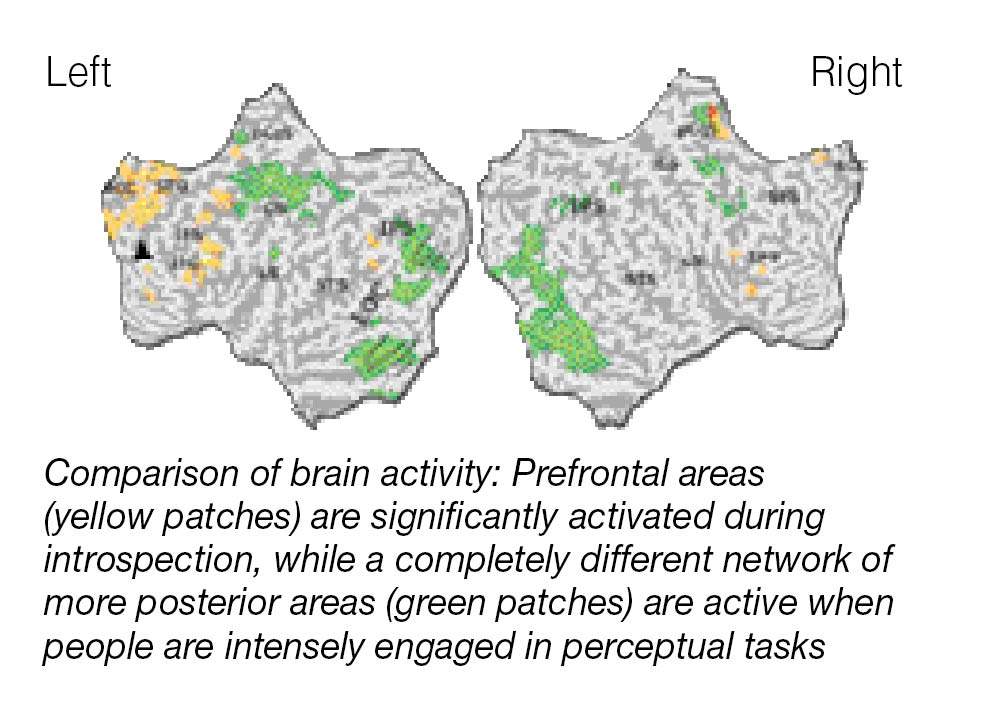Can one literally “lose oneself” in an experience?
Prof. Rafael Malach, Ilan Goldberg and Michal Harel of the Neurobiology Department found a scientific means of addressing this question – by scanning the brains of volunteers performing various mental tasks. The results of their study, published in Neuron, were unanticipated: When subjects were given outwardly focused tasks that demanded their full attention, areas of the brain that relate to the self were not only inactive – they appeared to be vigorously suppressed.
The scientists were particularly interested in certain regions in the prefrontal cortex – a part of the brain known to be involved in personality and self-knowledge, among other things. Brain scans performed with functional magnetic resonance imaging confirmed that these regions were active during introspection, but when subjects were absorbed in a recognition task – such as identifying pieces of music that included a trumpet’s sound – activity in these areas was silenced.
“It is tempting,” says Malach, “to put these findings in a broader perspective – one that veers away from traditional Western thought, with its emphasis on self-control and ‘someone always minding the store,’ and toward more Eastern perspectives, in which the self must be abandoned in order to engage fully with the outside world.” On a more scientific level, the study suggests that the brain’s self-awareness centers do not function as a critical element that allows perceptual awareness of the outside world. Rather, when we are so occupied with the outside world as to “forget ourselves,” only local, sensory-specific systems seem to be needed.
Prof. Rafael Malach’s research is supported by the Nella and Leon Benoziyo Center for Neurosciences; the Clore Center for Biological Physics; the Carl and Micaela Einhorn-Dominic Brain Research Institute; the Murray H. and Meyer Grodetsky Center for Research of Higher Brain Functions; the A.M.N. Fund for the Promotion of Science, Culture and Arts in Israel; the Edith C. Blum Foundation; and Mr. and Mrs. Irwin Green, Boca Raton, FL. Prof. Malach is the incumbent of the Barbara and Morris Levinson Professorial Chair in Brain Research.
